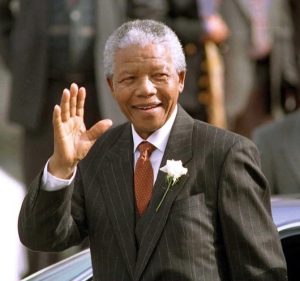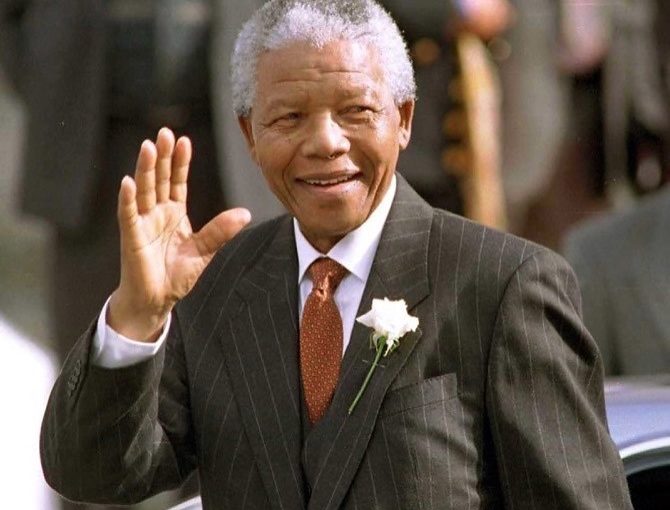
Alagi Yorro Jallow.
Fatoumatta: Today’s commentary will be more reclamatory than condemnatory in a country desperate for civility, unity, and hope. The Gambia and Gambians need to search for optimism and bring visionary leadership with innovation, creativity, and boldness with audacious ideas. The leadership challenges in The Gambia require that Gambians pay adequate attention to rescuing what is given to us as leaders and those who can be forced to achieve what is needed for nation-building. Furthermore, all this becomes imperative despite our human frailty.
I have always been a student of leadership dynamics, not only within the organizational framework or as a managerial necessity in government. Chinua Achebe’s lamentation about the absence of leadership in his famous and insightful book “The Trouble With Nigeria” professes that the only trouble with Nigeria is the failure of leadership strikes a deep core in me. Leadership is the most cogent factor in any reform effort, either at the organizational or national level. However, the search for this reform factor must be as realistic as the context in which the investigation occurs. It will be an irresponsible expectation to think that the Gambia can ever throw up a saint or savior without sin who will take us to the Promise Land.
Fatoumatta: Two years ago, to be precise, my little daughter told me her homework was to write a short essay on “The Leader Who Inspires Me.” I wondered whom she was going to pick. She, without any prompting, picked former South African president Nelson Mandela, the hero of the anti-apartheid struggle in South Africa and the global icon of the movement against socio-political injustice. Mandela stepped down as South Africa’s first black President in 1999 – four years before my daughter was born. She wrote: “I grew up hearing about him. Little did I realise what he had sacrificed for the sake of his people.” Then, after a gush of encomium on Africa’s most incredible son, she concluded: “I think the world would be a better place if all leaders were like Nelson Mandela. I aspire to be just like him.”
Mandela died at a very ripe age of 95. I re-read my daughter’s essay. “I think the world would be a better place if all leaders were like president Nelson Mandela.” As Gambian politicians tried to outdo one another in splashing tributes on Mandela, I parodied my daughter: “I think the Gambia would be a better place if our leaders were like Mandela.” Instead, many of our politicians like Abubacarr Ousainou Darboe and Kemeseng Jammeh are referred to by his supporters as “Mandela,” and commentators eulogize Mandela hypocritically. They extol his forthrightness in the struggle against injustice. However, They are busy perpetuating social injustice against hundreds of thousands of Gambians. They celebrate Mandela as a selfless leader but are busy accumulating obscene wealth at our expense. They praise Mandela for uniting South Africa but actively sowing seeds of ethnic and religious hate in the Gambia.
Fatoumatta: Let us talk about the real Mandela a bit – for the sake of those who are celebrating the man without believing in or understanding what he represented. For one, he was a unifier. He preached and practiced unity in diversity. He did not seek to promote one ethnic agenda above the other, despite the circumstances of his life. In his address to the sabotage trial that eventually led to his life imprisonment in 1964, he said: “I have fought against white domination, and I have fought against black domination. I have cherished the ideal of a democratic and free society in which all persons live together in harmony and with equal opportunities…”
After 27 years, he was released from prison in 1990. Elected President in South Africa’s first multi-racial election in 1994, the inimitable Mandela said he would establish “a rainbow nation.” If you do not know, South Africa has several major ethnic groups: Zulu, Xhosa, Venda, Tswana, Basotho, Bapedi, Tsonga, Swazi, Ndebele, and the Afrikaan. In prison, his best mate, Ahmed Kathrada, was a Muslim. He was above myopic and chauvinistic sentiments. He refused to exact revenge over the white supremacists who subjected him to physical and emotional torture for most of his life. Instead, he brought everyone under the umbrella of reconciliation. That is greatness.
Fatoumatta: When I hear Gambians eulogize Mandela, some refer to some ethnic-chauvinist and cultural elite hegemonic leaders as the Gambia’s Mandela. Hypocrisy is the word that jumps to my mind. Ethnic champions campaigning cultural hegemony and fragmentation ahead of the December 4, 2021 elections celebrate a man who refused to play the ethnic card in his lifetime. Many Gambians, young and old, shouting that Mandela today probably did not know that Mandela stood for peace and unity irrespective of color, race, and religion. White South Africans were shocked at his accommodation. The last President of the apartheid regime, FW de Klerk, described Mandela as a man “with a remarkable lack of bitterness.” That is greatness.
Fatoumatta: If only the Gambia had a Mandela! We have had the misfortune of being ruled and the tangal cheeb politicians by those who hardly see beyond their local cocoons. From the independence era to the Second Republic and the third republic, most of those at the forefront of leadership has pursued nothing but elitist and tribal interests to the detriment of the greatness of this country. We have been ruled in the main by those who whip up nothing but ethnoreligious sentiments to gain and retain political power. We have been governed by those who think owning the most expensive houses and riding the classiest jets are the hallmarks of greatness in public office. However, we are celebrating Mandela today not because of his wealth and fortune but because of his wealth of leadership that has changed the fortune of a nation and a continent.
There is no excuse we want to give about the unending fragmentation of the Gambia by politicians and their allies. South Africa, like The Gambia, is a colonial creation. It is a diverse entity, like The Gambia. They had a common enemy in European colonial powers, like The Gambia. The only difference is leadership – a leadership determined to build one united, indivisible country. As Mandela himself put it on his inauguration in 1994, “We enter into a covenant that we shall build the society in which all South Africans, both black and white, will be able to walk tall, without any fear in their hearts, assured of their inalienable right to human dignity – a rainbow nation at peace with itself and the world.”
The fundamental question for me is: What can be done with or gained from the presidential aspirant’s political capital as significant dynamics come in the aftermath of the December 4, 2021, presidential elections? Unfortunately, the political capital the Gambia requires for meaningful national reform does not deploy?
Fatoumatta: I urge the new generation of Gambians to shun the politicians and their clones. Instead, they go about preaching the balkanization of the Gambia as the only precondition for our progress. They keep reproducing the prejudices perpetrated by some of our politicians. These prejudices must end with their generation. We need a new Gambia – a rainbow nation, as espoused by Mandela. My daughter’s words are coming back to me yet again: “I think the world would be a better place if all leaders were like Mandela.”Carisma for dumb electoral victory. On the contrary, there is the need for an ideological arrowhead that could serve as the rallying point for a progressive recalibration of politics around which we can redefine democratic governance in the Gambia.
To the people of South Africa – people of every race and walk of life – the world thanks you for sharing Nelson Mandela with us. His struggle was our struggle. His triumph was our triumph. Your dignity and hope found expression in his life, and your freedom, your democracy is his cherished legacy,
Madiba was a walking classroom we could draw from to claim the promise of the Gambia that is so severely under threat from how we are led. Born during world war one, far from the corridors of power, a boy raised herding cattle and tutored by elders of his Thembu tribe Madiba would emerge as the last great liberator of the 20th century. Like Gandhi, he led a resistance movement that held little prospect of success at its start. Like Martin Lurther King Jr., he gave a powerful voice to the claims of the oppressed and the moral necessity of racial justice. He endured brutal imprisonment that began in John F. Kennedy and Nikita Khrushchev and reached the final days of the Cold War. However, emerging from prison, he would – like Abraham Lincoln hold his country together when it threatened to break apart without the force of arms. Like America’s founding fathers, he erected a constitutional order to preserve freedom for future generations, a commitment to democracy and the rule of law ratified not only by his election but by his willingness to step down from power.
Given the sweep of his life and the adoration that he so rightly earned, it is tempting then to remember Nelson Mandela as an icon, smiling and serene, detached from the tawdry affairs of lesser men. However, Madiba himself strongly resisted such a lifeless portrait. Instead, he insisted on sharing with us his doubts and fears, his miscalculations, along with his victories. “I’m not a saint,” he said, “unless you think of a saint as a sinner who keeps on trying.”
Fatoumatta: Leaders must have eyes that see tomorrow and seek to transport all to that destination. Mandela visited a free South Africa, a world of the dignity of the human person and lived life, a life that was a transport vehicle moving those on his path to that destination. However, unfortunately, current public life in the Gambia often seems so lifeless regarding a future that all could own and inspire the people towards it.
Just as important is for our future is his detachment from the ruin of our politicians, clutching to power, money, and the deployment of impunity.
Mandela proved to peak as an icon outside of power, deciding against a second term as he refused to seek a 2nd term. Mandela wanted to teach a lesson that no African leader could understand. The capacity to see the big picture and the future defined leadership in Abraham Lincoln and Nelson Mandela. Their sense of service and the trust it engendered made the visionary disposition yielding of transforming leadership.
Fatoumatta: Unfortunately, what dominates the extant leadership elite in the Gambia are transactions that enable power to be cornered and consolidated. Ironically, transformation is talked about by power in The Gambia; we have transaction walk-in practice.

